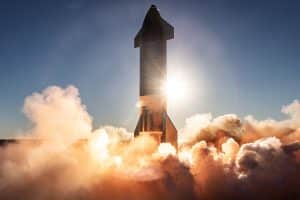Lucid Motors made it a point to go above and beyond the industry standard when it released the Air, its first vehicle. With a range of over 500 miles, the Air was a strong statement from the EV maker. It entered the electric luxury sedan market late, but its range alone showed that it was a serious contender.
While the Lucid Air is not selling as strongly as its rivals like the Porsche Taycan and the Tesla Model S, the luxury electric vehicle maker is nonetheless optimistic about its potential. Just recently, Lucid and Aston Martin signed a deal that would see the American automaker supply powertrain components to the British sports car company. The Lucid Air also continues to earn accolades, including the 2023 World Car Luxury Car of the Year award.
Amidst these efforts, Lucid CEO Peter Rawlinson highlighted in a conversation with Auto Express UK that Lucid has developed into a group with three pillars. One pillar corresponds to the company’s vehicles like the Lucid Air and the upcoming Gravity SUV; another pillar corresponds to the company’s energy storage business; and the last corresponds to technology licensing transfer supply. It is this third pillar that Rawlinson sees quite a lot of potential, noting that he is hoping that Lucid could become the EV equivalent of Intel.
“We are limited by the number of cars we can make and sell for our technology. I want to have a big impact upon the planet – we’re worried about global warming. I want to get more people into electric cars sooner and it’s important that we use a multiplier effect that other people can be making cars with our technology. There’s a great example in Intel. There’s an Intel inside logo on many computers, and it’d be lovely to see ‘Lucid Inside’ on cars, too,” Rawlinson.
And while Rawlinson noted that Lucid plans to eventually offer vehicles that are cheaper — likely in the $50,000 range and thereby being competitors to the Tesla Model 3 and Model Y — the company is looking to provide innovations for even mainstream cars in the future. In a rather interesting statement, Rawlinson stated that the electric vehicle of the future only really needs 250 miles, and with Lucid’s technology, such a range should be achieved with a fairly small battery pack.
“The biggest impact on the mass market car will be with smaller battery packs. My vision is could we get to six miles per kilowatt-hour? We’re at 4.6 now. Could we get to six miles per kilowatt-hour with a fast-charging infrastructure, with overnight charging? The electric car of the future only needs 250 miles. We don’t need 500-mile cars in the future, 10 years from now.
“If we could get six miles per kilowatt-hour and you only need 150 miles range, that’s a 25 kilowatt-hour pack. That’s a $4,000 pack particularly with a bit of industrializing scale and battery manufacture. That’s what we need to make a $25,000 car and that’s what the environment and the world needs urgently to get masses into electric cars. You need the $25,000 car. Now is Lucid going to make that? No. It’s a horrible thing to be making. But could we be the ‘intel inside’ for that car? The enabler? Absolutely. And that’s where we could get the multiplier effect,” Rawlinson said.





